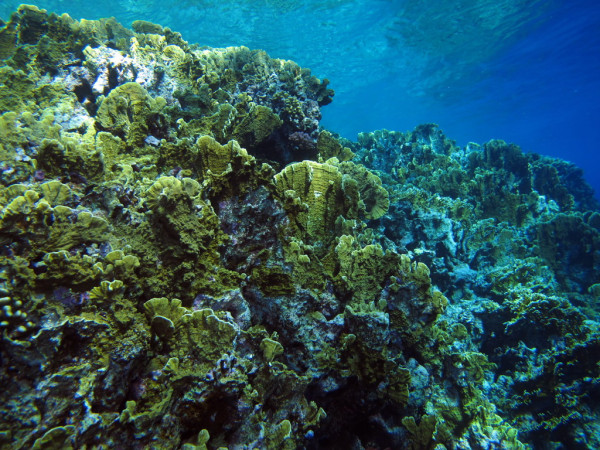7 Scuba Diving Myths Busted

Quit Your Day Job and Become a Scuba Instructor
A year ago, Ellie Brampton felt like she needed a change. After months of deliberation, she made the decision to quit her job and move to the Honduras to be trained as a scuba instructor. She slowly began telling her friends and found that they were either the supportive ones or the worriers. The more objections she heard from the worriers the more she realized that there were a lot of myths out there about scuba diving. After hearing the same objections over and over she decided that many people were misinformed and decided to set the record straight.
The following is an excerpt from an article by Ellie Brampton.
1. It’s a fast paced adrenaline sport.
… I find this distinction to be a gross misunderstanding of what diving actually involves. To my mind, diving isn’t a sport at all. There’s little to no element of competition about it and it’s neither fast nor furious. The best divers in the world tend to be chilled, laid-back types, because diving requires you to be unhurried, languid and relaxed underwater, taking slow, deep breaths and using the leisurely pace to take in what’s around you…2. You have to go really deep to see the best stuff that the ocean has to offer.
One of the best dives I’ve ever done was at 4 metres deep in St Lucia. We swam around a small but vibrant reef just off the shore and peered at tiny seahorses and ultra-violet corals whilst rainbow shoals of tropical fish glided around us. While we were diving, we’d look up and see snorkelers waving down at us. At points towards the end of the dive, we were so shallow that, had I stood up, my head would have popped out above the surface. Without going deeper than the height of a regular school bus, I enjoyed some of the best spectacles that I’ve ever seen…3. You’ll get eaten by a shark.
Galeophobia, or fear of sharks to you and me, affects a startlingly high number of us and, with sharks portrayed by Hollywood and the media as a lean, mean killing machines, it’s easy to see why. But sharks are actually shy, reserved and graceful animals.,,
If your fear of sharks is insurmountable, research destinations that are not famed for shark sightings. Most places will have hot-spots for spotting sharks and rays which you can avoid. Although it’s an understandable fear, it shouldn’t be enough to stop you dipping your toe in the water…
4. It’s the same as snorkeling, just more expensive and more hassle.
The beauty of diving is that it allows you to get up close and personal with marine life you’d never otherwise get to see. Whilst snorkeling is a great experience that affords you a great snapshot of the underwater world, nothing compares to the sensation of being fully submerged. It’s like the difference between going to the zoo and going on safari; only when you immerse yourself in the natural landscape do you really appreciate the beauty, the tranquility of these stunning animals in their natural habitat. Rather than peering through the window, why not break down the walls and become part of your surroundings? It’ll be an experience that you’ll never forget.5. You need to have a PADI qualification.
Whilst you’ll need to be certified to dive unaccompanied, anyone can try scuba diving to see if they like it. As long as you’re over the age of ten and you’re generally fit and healthy, you can dive up to 10 metres – which, as discussed in point 2, is more than enough to experience what the ocean has to offer. Any diving centre will happily take new divers on a Discover Scuba Dive.6. Diving is a male-orientated activity.
Diving is one of the few activities which is virtually gender neutral. Size or speed is no advantage in underwater, and you do not need to have longer legs or a naturally faster metabolism. Having hips, a bust, PMS or long hair will not set you back in the slightest. In fact, women are often recognised to be better divers as they generally have smaller lungs which can mean they consume less air whilst underwater.7. It will feel claustrophobic.
Until you’ve tried diving, it’s hard to know what it’ll feel like and how you’ll respond to it. It’s easy to imagine that the heavy, complicated breathing apparatus will be restricting, or that the pressure of the water will be uncomfortable. But as you descend, you’ll find that your body gives way to a serene lightness as the water cradles your weight. Looking around, you’ll be amazed at how much unspoiled, sprawling natural beauty stretches all around you…To read the complete article by Ellie Brampton, click here to go to www.travelettes.net.










